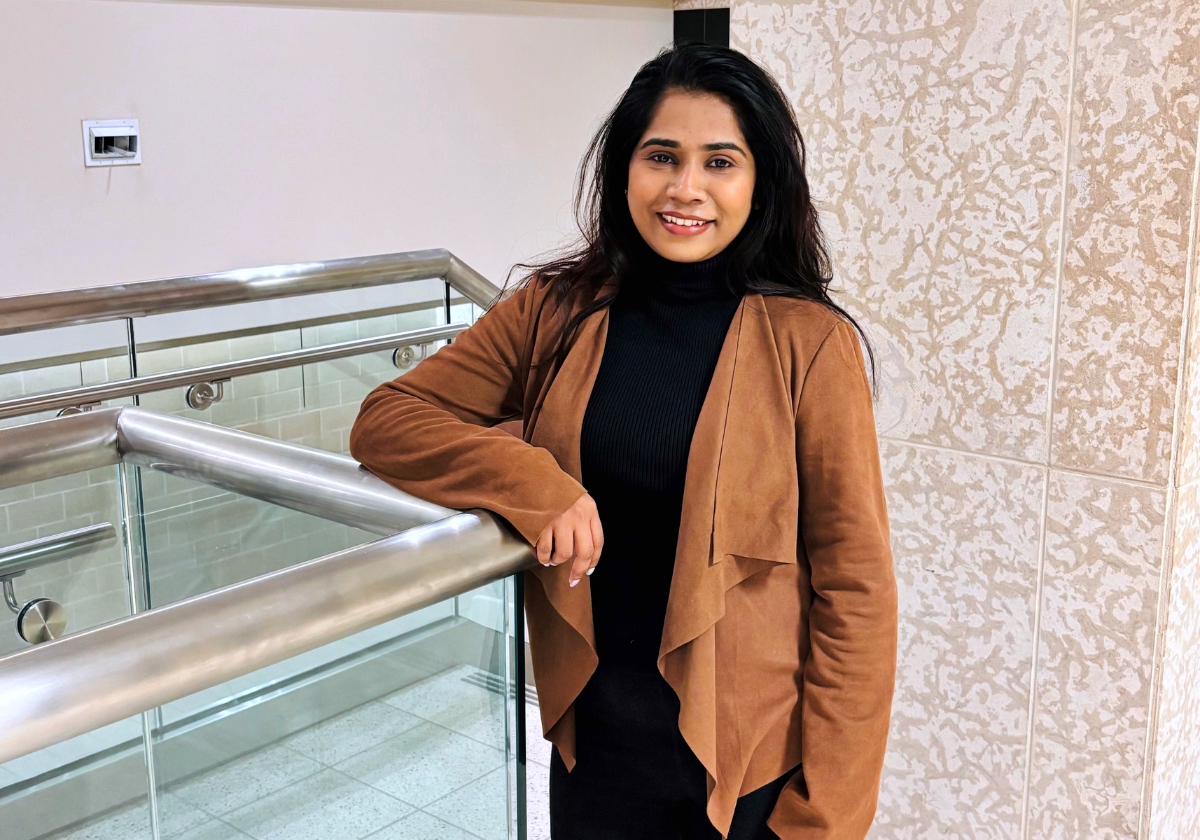
Graduate Student Researches Food Insecurity
Master of Nursing student Buddhini Samarasekara is focusing her research on cultural food insecurity among Immigrants in Canada.
She may have just started her thesis research for her Master of Nursing, but University of Saskatchewan (USask) graduate nursing student Buddhini Samarasekara has already been working as a researcher and identified it as the field where she aspires to make her mark.
Originally from Sri Lanka, Samarasekara completed an Honours Bachelor’s degree with thesis option in 2020 and has been working as a graduate teaching assistant, research assistant, and volunteer field researcher.
Samarasekara gained her first clinical nursing experience in Bermuda as a triage nurse and a health and wellness coordinator, where she was introducing nutrition and lifestyle modifications for people with obesity and diabetes.
Now at USask, Samarasekara has decided to focus her master of nursing research on cultural food insecurity among immigrants in Canada, exploring the need for culturally appropriate food for growing immigrant communities in Canada.
“I was doing research in marginalized and rural communities back home, where people sometimes have limited access to care, resulting in public health issues,” said Samarasekara.
“Immigrants are more vulnerable to food insecurity in a host country, specifically accessing culturally sensitive food. People talk about other dimensions of food largely, but cultural influence has been overlooked. Based on the United Nations Sustainable Development Goal number two for 2030—Zero Hunger—it’s important to facilitate safe food environments for achieving health and equity for everyone.”
“For my master’s thesis, I plan to do a deep dive into the available literature and conceptualize cultural food insecurity through a nursing lens because cultural food does not just act as a major social determinant of health, but also a basic human right,” said Samarasekara.
“This will help show the benefits of providing culturally sensitive nursing care and advocacy for implementing immigrant-healthy policies in the future,” she explained.
Samarasekara says she’s had a great experience at USask. She is impressed with the University of Saskatchewan’s reputation as a research university, and the people she’s met have been welcoming.
“Canadians are super friendly and really supportive,” she adds.
Samarasekara likes the smaller community of Saskatoon, although she is often visiting Bermuda, where her husband still works. In the future, she plans to continue health research and aspires to be a nurse scientist.
“I think research is all about connecting the dots between the past and the present, creating a better future for humankind,” said Samarasekara.
Together we will support and inspire students to succeed. We invite you to join by supporting current and future students' needs at USask.

